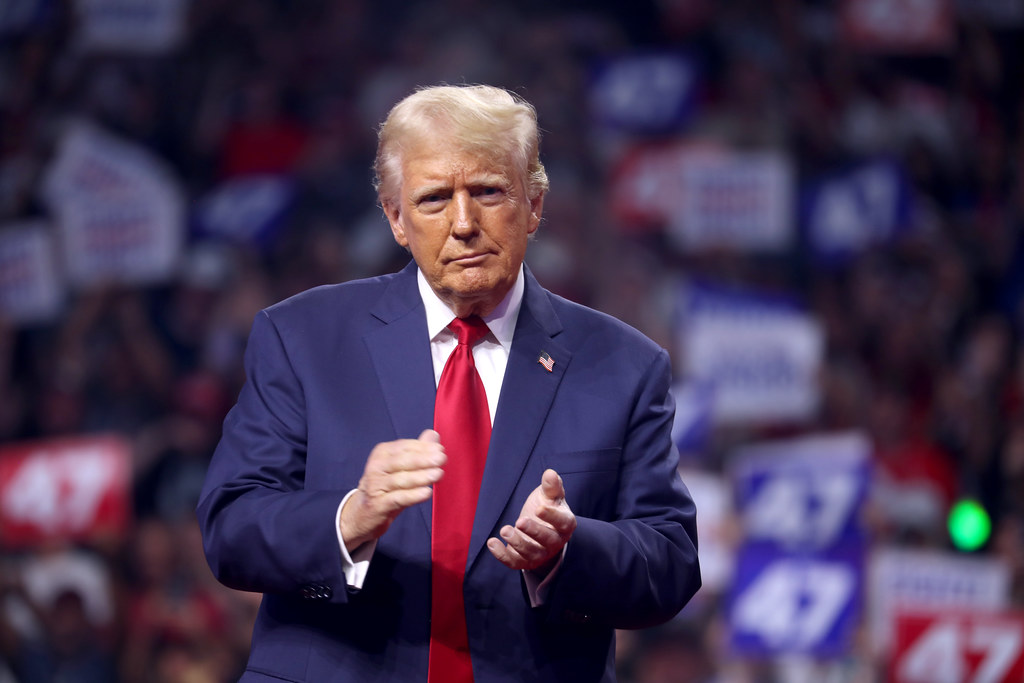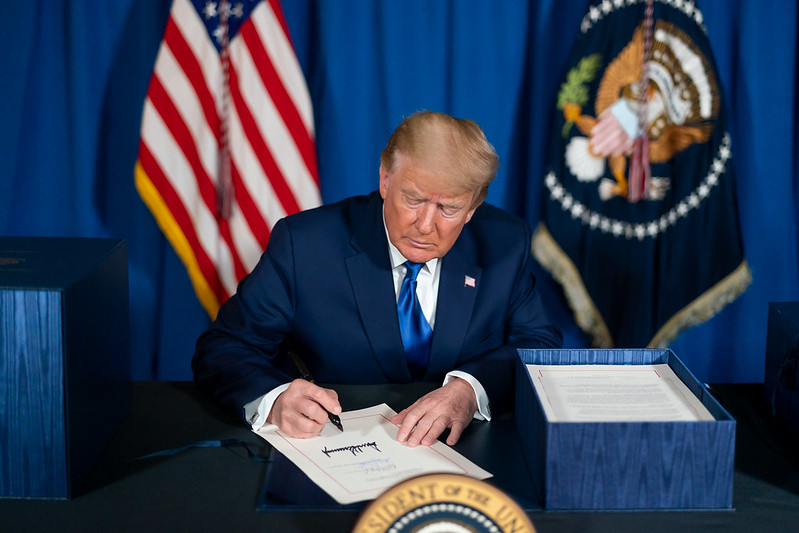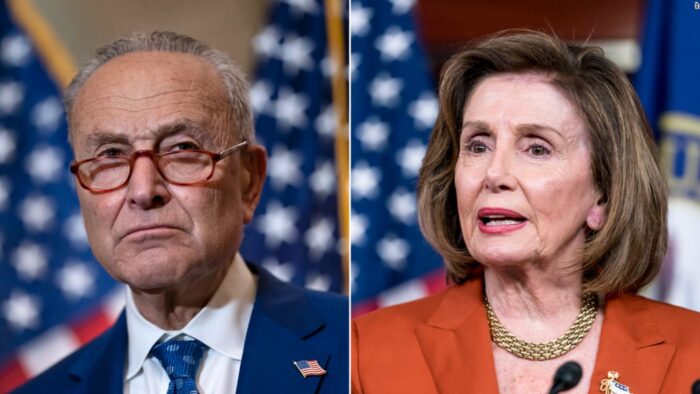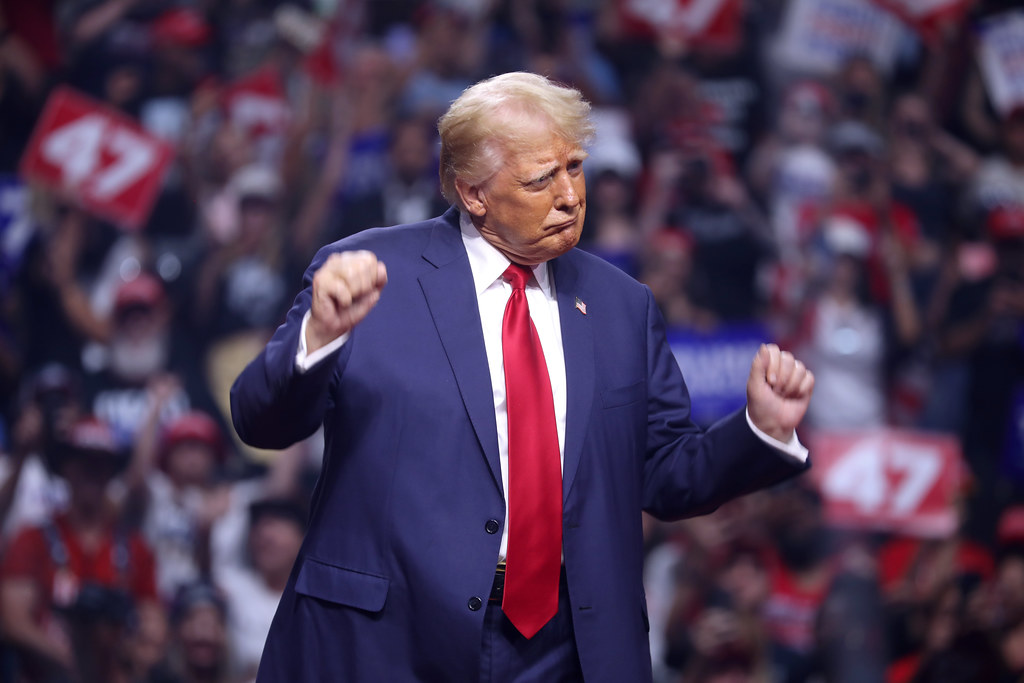The U.S. Supreme Court early Saturday temporarily halted the deportation of immigrants potentially targeted under the Alien Enemies Act, issuing a stay in a rapidly evolving case involving a group of Venezuelan nationals in Texas who claim the Trump administration is attempting to remove them.
The court’s brief order, which did not include an explanation, drew dissents from Justices Samuel Alito and Clarence Thomas.
Attorneys for the immigrants filed an emergency appeal Friday, arguing they faced imminent removal without adequate notice or opportunity to challenge their deportation. The Court directed the Trump administration to respond to the appeal after the federal appeals court in Louisiana takes further action in the case, CNN reported.
Meanwhile, the court said, “The government is directed not to remove any member of the putative class of detainees from the United States until further order of this court.”
Earlier, a federal judge in Washington, D.C., informed attorneys representing the Texas-based migrants that he lacked the authority to halt their deportations under the Alien Enemies Act, despite expressing concern over the Trump administration’s actions.
“I am sympathetic to everything you’re saying, I just don’t, I think, I have the power to do anything,” US District Judge James Boasberg told a lawyer for the illegal migrants.
Before declining to intervene, Boasberg questioned a Justice Department attorney about whether the administration intended to proceed with the deportations on Friday night or Saturday. DOJ lawyer Drew Ensign responded that while no removal flights were currently scheduled, the Department of Homeland Security reserved the right to carry out deportations on Saturday.
Meanwhile, the migrants’ legal team also sought emergency relief from the 5th U.S. Circuit Court of Appeals, which handles cases arising from Texas.
“It’s hard for me to say I should inject myself into this controversy given where the issue stands in the 5th Circuit and the Supreme Court,” Boasberg said during the Friday hearing.
Saturday’s decision marks the second time the Supreme Court has weighed in on the Trump administration’s use of the Alien Enemies Act.
Last week, the high court allowed the administration to invoke the law but required that migrants facing removal be given notice and the opportunity to challenge their deportation in the federal court located in the district where they are detained. The justices also ruled that such legal challenges must be filed in the jurisdiction of the detention facility, not elsewhere.
The ongoing legal battle highlights the administration’s aggressive push to continue deportations under the Alien Enemies Act, which permits the government to bypass certain procedures typically required under standard immigration laws.
On Thursday, meanwhile, a federal appeals court rejected the Trump administration’s emergency request to block a judge’s order requiring the U.S. government to facilitate the return of Kilmar Abrego Garcia, an illegal immigrant from El Salvador with a violent criminal record and suspected gang affiliations.
Garcia was deported last month to the high-security “Terrorism Confinement Center” (CECOT) in El Salvador. The appeals court ruling allows the lower court’s order to remain in effect for now.
The case centers on Abrego Garcia, a deported “Maryland man,” whose return was mandated by a district judge following a recent Supreme Court ruling. The Department of Justice had asked the U.S. Court of Appeals for the Fourth Circuit to overturn the order, but the court declined to do so.
The three-judge panel consisted of Judge Harvie Wilkinson, a Reagan appointee, Judge Robert King, appointed by President Bill Clinton, and Judge Stephanie Thacker, appointed by President Barack Obama.
In the court’s opinion, Wilkinson repeatedly referred to Abrego Garcia as a “resident,” even though Abrego Garcia is not a lawful U.S. resident, Fox News reported.





